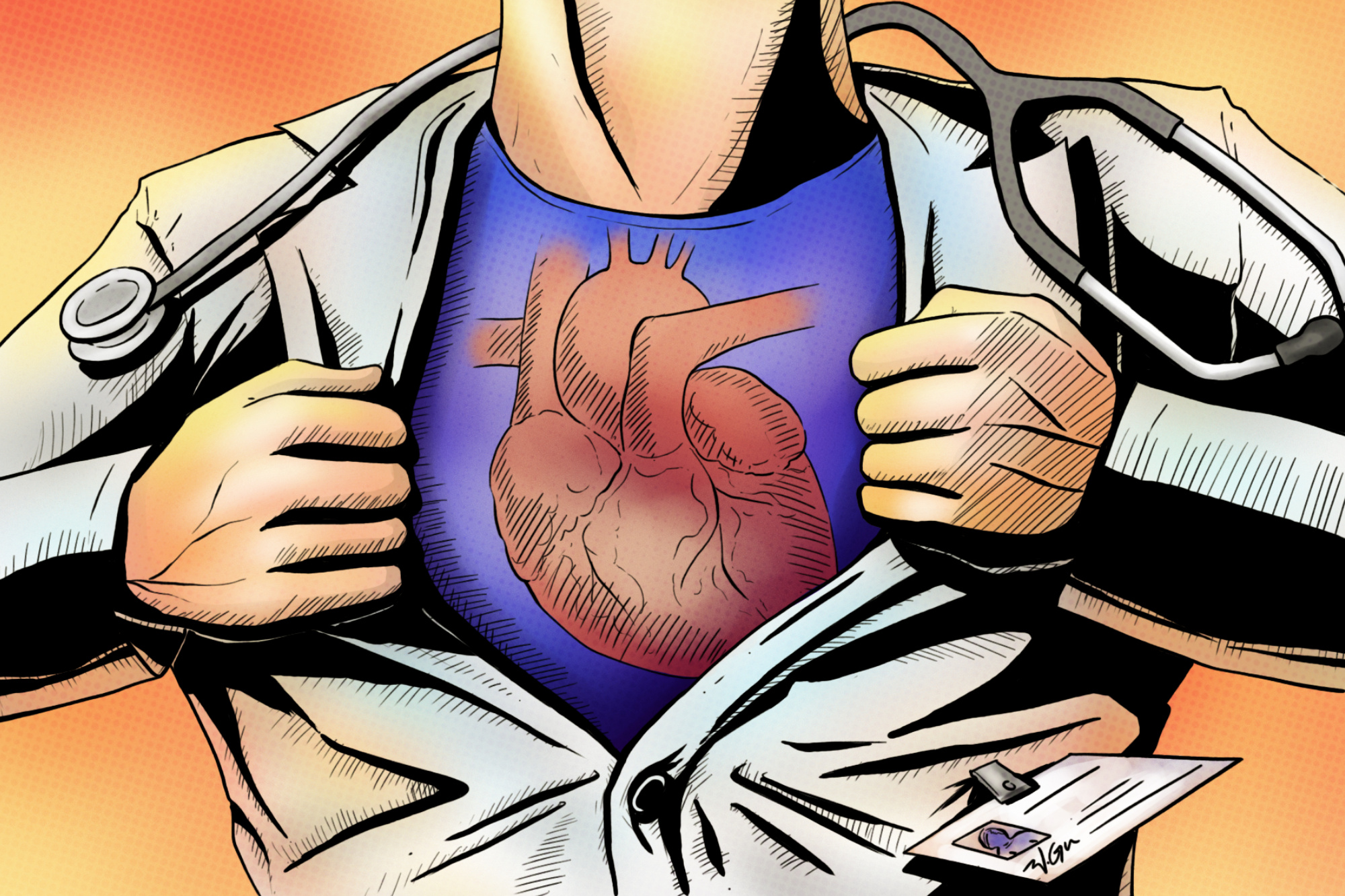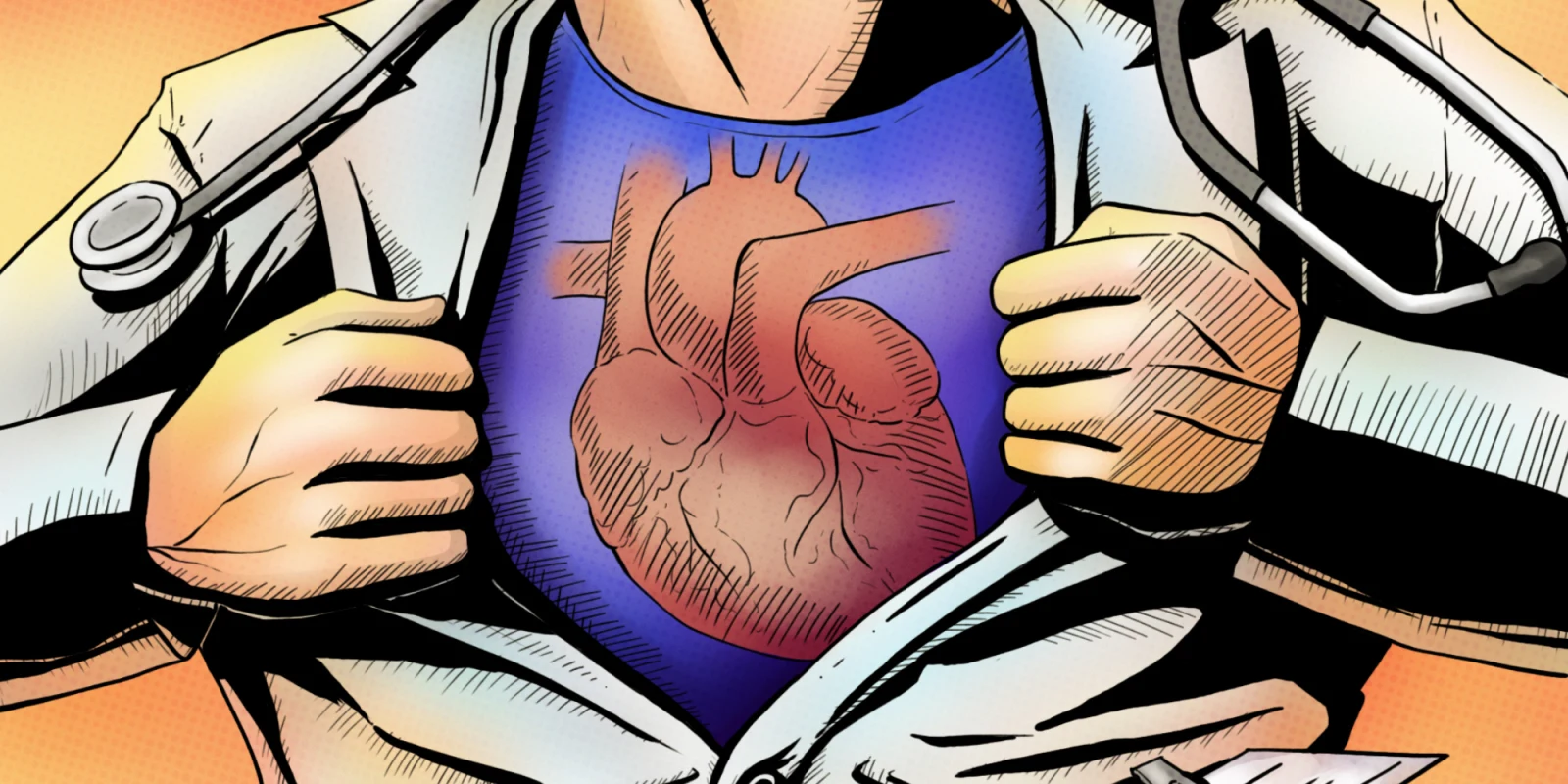
Breathless, cachectic, and pale, the patient sat before me in the emergency room. It was like looking in a mirror and seeing a version of my past self. Not physically, but emotionally. Two or three years prior to our meeting, I had the same hunger as this young, severely ill patient that laid gasping for air, awaiting admission into the ER.
He came in with a chief complaint of having shortness of breath. This young man, who was surrounded by his family then, told me about his recent struggle with a newly metastasized cancer. As he shared his story, I saw the obvious signs of a losing battle for life and independence.
For him, however, it was a tale of perseverance and passion. Sitting in a thick cloud of an opioid-induced haze while trying to combat severe pain and hypoxia, he asked me the most damning question for any physician.
“When would I be discharged if I get admitted?”
I sat and was dumbstruck by the thought that he could even consider the idea of being outside of the hospital at that moment. When I asked what could be so important that he would want to leave the hospital, he gave me a surprising response.
“My white coat ceremony is tomorrow,” he said.
We all have had those moments in our lives that change our trajectory and put us on the path toward pursuing a career devoted to clinical medicine. The grueling years spent prepping and passing standardized exams and rotating through various clinical experiences — while often feeling lost and utterly confused — are done in the hope of eventually finding our way to a place where we feel some semblance of understanding of the human body and how to heal the ailments that burden it.
After years of devoted study, not to mention a lot of emotional, physical, and temporal investment into the lives of our patients and coworkers, there comes an inevitable shift in our perception of this great expense. Be it early or late in our journey through the art of healing and abating human suffering, that gloomy day comes to us all when doubts of our purpose flood our minds and hearts, bringing into question the true benefit and pertinence of training and practicing medicine.
For me, there was no greater challenge to my decision to pursue a career in medicine than when faced with the terminally ill patient with an unwavering desire to embark on a medical career. I had posed several questions to various colleagues after that patient exam on the same day: If you were given months to live, would you spend your dying days in pursuit of this? Do you find value and sustenance in your work here and now?
On dark days when I literally haven’t seen the sun in a week. On hard days when it seems like my inpatient service is saturated with patients who have either fallen victim to a broken medical system or are in need of heart-wrenching end-of-life discussions. In times where it seems so difficult to find the light and refocus on the positives in order to rediscover that passion and drive we had that spurred us forward on a path in medicine. Compassion fatigue and burnout skews our view of our mindset and effect in the world of medicine. It can make those tiny successes seem trivial. It will follow you home after a particularly rough shift. It deceitfully creeps into your dreams and makes you second guess your value, abilities, and worth as a provider. It’s times like those that the hungry, eager to change the world, full of energy and life, MS1 version of myself gets buried in a thick fog of self-denial and reservation.
In moments like those, my mind drifts to that patient. A young man I only met once, but whose spirit and passion had such a profound and lasting impression on me. He, when faced with death, thought of nothing more than moving forward with his dream of becoming a doctor. If I could channel just a fraction of his eagerness and self-assuredness at the pursuit of a medical career, the fog would lift. It’s a nice wake-up call for me to remember what a privilege it is to care and serve patients at every stage and walk of life. It’s a hard job trying to figure out how to not take my patients’ baggage home with me or feel valued and effective in a system that seems to be actively working against me. But refocusing on the small victories and finding positive elements in my interactions with patients helps me get through a lot.
It’s a hard thing to talk about, but during this time of transition as residents are graduating and getting promoted to the next phase of their careers — newly minted clinicians take their oath to practice medicine with valor, veritas, and vigor. Bright-eyed students begin their path toward a grueling four (or more) years of study. My advice to you all is as follows:
For those of you making that first big leap into your medical career: try to bottle up that excitement, joy, and energy for medicine.
For those of you who are already beyond these benchmarks: I encourage you to reinvest in your current love for medicine.
And, most importantly, for those of you struggling through the thick fog of burnout, or compassion fatigue, disconnection, or whatever you may call it, I implore you to find help. Lean on your coworkers, your mentors, your family, your loved ones, or whoever it takes in order to find a renewed sense of dedication and vigor for this hard but wonderful job we have.
Reflecting on all of that has happened thus far on your journey, would you choose this path again? Leave your thoughts in the comments below.
Chioma Udemgba, MD is a third-year med-peds resident physician currently training at Tulane University in New Orleans, LA. She is passionate about creative writing, graduate medical education, and working with underserved populations. Dr. Udemgba is a 2018–2019 Doximity Author.
Illustration by Wendy Gu






